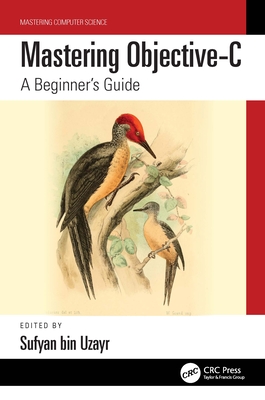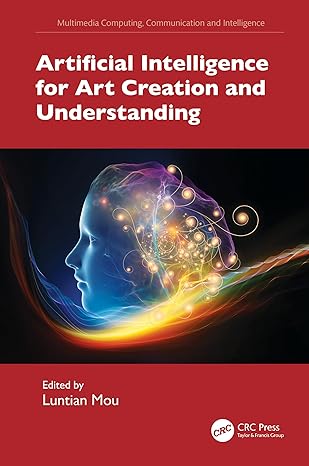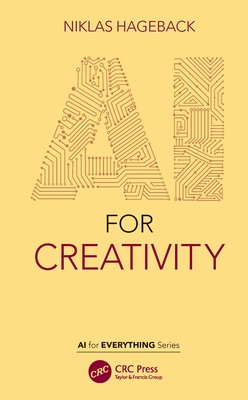图书简介
A. W. F. Edwards is one of the most influential mathematical geneticists in the history of the discipline. One of the last students of R. A. Fisher, Edwards pioneered the statistical analysis of phylogeny in collaboration with L. L. Cavalli-Sforza, and helped establish Fisher?s concept of likelihood as a standard of statistical and scientific inference. In this book, edited by philosopher of science Rasmus Gr鴑feldt Winther, Edwards?s key papers are assembled alongside commentaries by leading scientists, discussing Edwards?s influence on their own research and on thinking in their field overall. In an extensive interview with Winther, Edwards offers his thoughts on his contributions, their legacy, and the context in which they emerged. This book is a resource both for anyone interested in the history and philosophy of genetics, statistics, and science, and for scientists seeking to develop new algorithmic and statistical methods for understanding the genetic relationships between and among species both extant and extinct.
Introduction Rasmus Gr鴑feldt Winther; Part I. Selected Papers of A. W. F. Edwards: 1. The reconstruction of evolution (1963) with L. L. Cavalli-Sforza; 2. Reconstruction of evolutionary trees (1964) with L. L. Cavalli-Sforza; 3. Analysis of human evolution under random genetic drift (1964) with L. L. Cavalli-Sforza and I. Barrai; 4. Analysis of human evolution (1965) with L. L. Cavalli-Sforza; 5. A method for cluster analysis (1965) with L. L. Cavalli-Sforza; 6. Studying human evolution by computer (1966); 7. Estimation procedures for evolutionary branching processes (1966) with L. L. Cavalli-Sforza; 8. Fundamental theorem of natural selection (1967); 9. Phylogenetic analysis: models and estimation procedures (1967) with L. L. Cavalli-Sforza; 10. Statistical methods in scientific inference (1969); 11. Estimation of the branch points of a branching diffusion process (1970); 12. Review of Evolution and the Genetics of Populations, Volume 2 by S. Wright (1971); 13. Affinity as revealed by differences in gene frequencies (1972) with L. L. Cavalli-Sforza; 14. Likelihood (1972); 15. The history of likelihood (1974); 16. Are Mendel?s results really too close? (1986); 17. Probability and likelihood in genetic counselling (1989); 18. The fundamental theorem of natural selection (1994); 19. Assessing molecular phylogenies (1995); 20. The origin and early development of the method of minimum evolution for the reconstruction of evolutionary trees (1996); 21. Darwin and Mendel united: the contributions of Fisher, Haldane and Wright up to 1932 (2001); 22. Human genetic diversity: Lewontin?s fallacy (2003); 23. Parsimony and computers (2004); 24. Statistical methods for evolutionary trees (2009); 25. Mathematizing Darwin (2011); 26. Robert Heath Lock and his textbook of genetics, 1906 (2013); 27. R. A. Fisher?s gene-centred view of evolution and the fundamental theorem of natural selection (2014); 28. Analysing nature?s experiment: Fisher?s inductive theorem of natural selection (2016); Part II. Commentaries: 29. Anthony Edwards? seminal contributions to phylogenetics, likelihood, and understanding R. A. Fisher and the history of genetics Walter Bodmer; 30. Anthony Edwards, Luca Cavalli-Sforza, and phylogenies Joseph Felsenstein; 31. The historic split and merger of gene trees and species trees Rasmus Nielsen; 32. Likelihood and the comparative method in evolutionary biology Mark Pagel; 33. Likelihood inference in models for the genetic diversity of populations Elizabeth Thompson; 34. A. W. F. Edwards and the origin of Bayesian phylogenetics Ziheng Yang; 35. A conversation about Fisher (1930, 1958) Warren J. Ewens; 36. Edwards on Fisher?s fundamental theorem of natural selection Samir Okasha; 37. A. W. F. Edwards, R. A. Fisher and the genetical theory of natural selection Maurizio Esposito; 38. Reading and misreading Fisher: Anthony Edwards and the history of population genetics Jean-Baptiste Grodwohl; 39. Variance-partitioning and classification in human population genetics Noah A. Rosenberg; Part III. Interviews with A. W. F. Edwards: Day 1: Selection theory; Day 2: Phylogenetic inference; Day 3: Edwards and Fisher; Part IV. A. W. F. Edwards: 40. A W. F. Edwards: curriculum vitae; 41. A. W. F. Edwards: list of scientific publications; Appendices: a geometric interpretation of Edwards 2003 Amir Najmi; The genetic reification of ?race?: a story of two mathematical methods Rasmus Gr鴑feldt Winther; ?My Fisher? A. W. F. Edwards; 1963 Antonio?s theorem.
Trade Policy 买家须知
- 关于产品:
- ● 正版保障:本网站隶属于中国国际图书贸易集团公司,确保所有图书都是100%正版。
- ● 环保纸张:进口图书大多使用的都是环保轻型张,颜色偏黄,重量比较轻。
- ● 毛边版:即书翻页的地方,故意做成了参差不齐的样子,一般为精装版,更具收藏价值。
关于退换货:- 由于预订产品的特殊性,采购订单正式发订后,买方不得无故取消全部或部分产品的订购。
- 由于进口图书的特殊性,发生以下情况的,请直接拒收货物,由快递返回:
- ● 外包装破损/发错货/少发货/图书外观破损/图书配件不全(例如:光盘等)
并请在工作日通过电话400-008-1110联系我们。
- 签收后,如发生以下情况,请在签收后的5个工作日内联系客服办理退换货:
- ● 缺页/错页/错印/脱线
关于发货时间:- 一般情况下:
- ●【现货】 下单后48小时内由北京(库房)发出快递。
- ●【预订】【预售】下单后国外发货,到货时间预计5-8周左右,店铺默认中通快递,如需顺丰快递邮费到付。
- ● 需要开具发票的客户,发货时间可能在上述基础上再延后1-2个工作日(紧急发票需求,请联系010-68433105/3213);
- ● 如遇其他特殊原因,对发货时间有影响的,我们会第一时间在网站公告,敬请留意。
关于到货时间:- 由于进口图书入境入库后,都是委托第三方快递发货,所以我们只能保证在规定时间内发出,但无法为您保证确切的到货时间。
- ● 主要城市一般2-4天
- ● 偏远地区一般4-7天
关于接听咨询电话的时间:- 010-68433105/3213正常接听咨询电话的时间为:周一至周五上午8:30~下午5:00,周六、日及法定节假日休息,将无法接听来电,敬请谅解。
- 其它时间您也可以通过邮件联系我们:customer@readgo.cn,工作日会优先处理。
关于快递:- ● 已付款订单:主要由中通、宅急送负责派送,订单进度查询请拨打010-68433105/3213。
本书暂无推荐
本书暂无推荐














